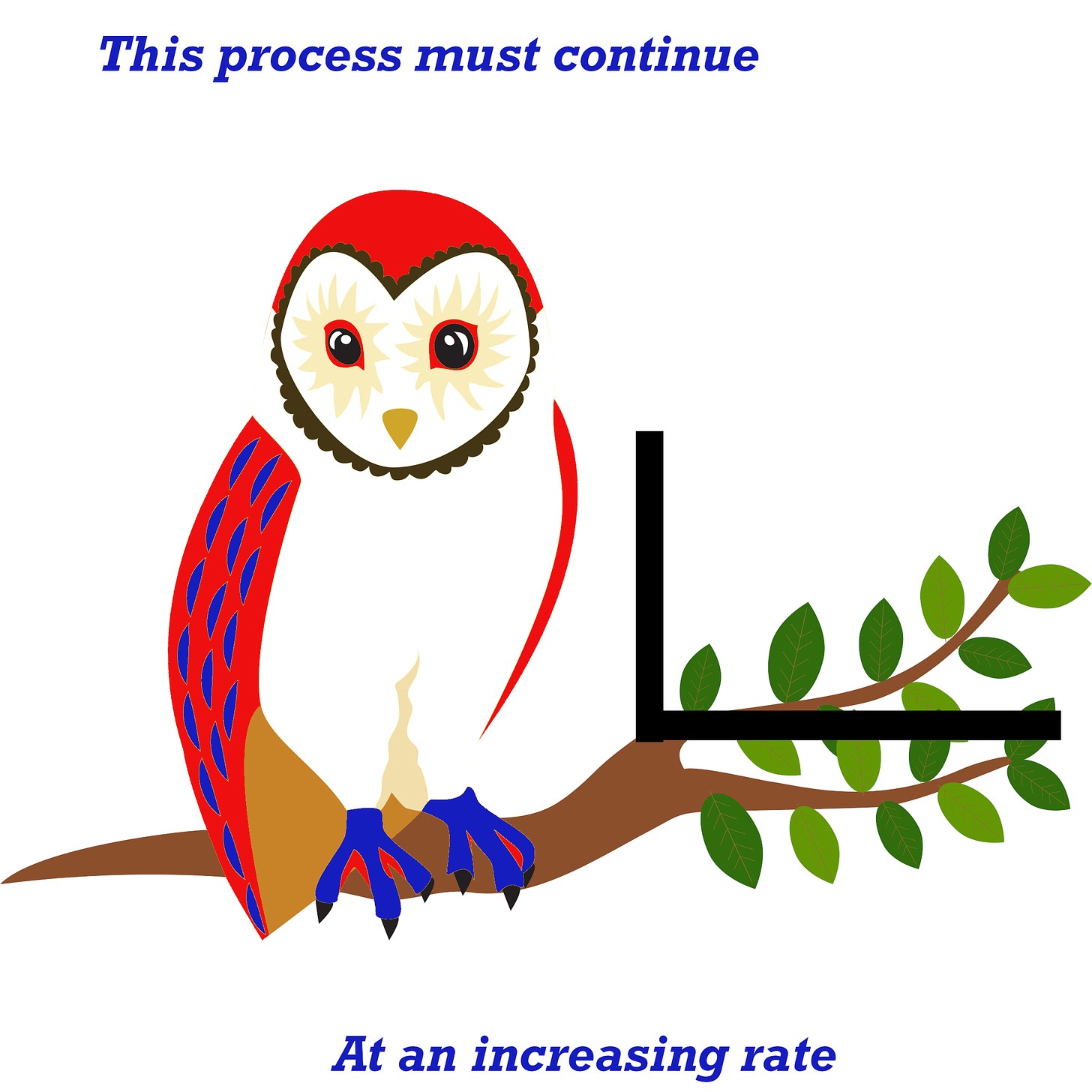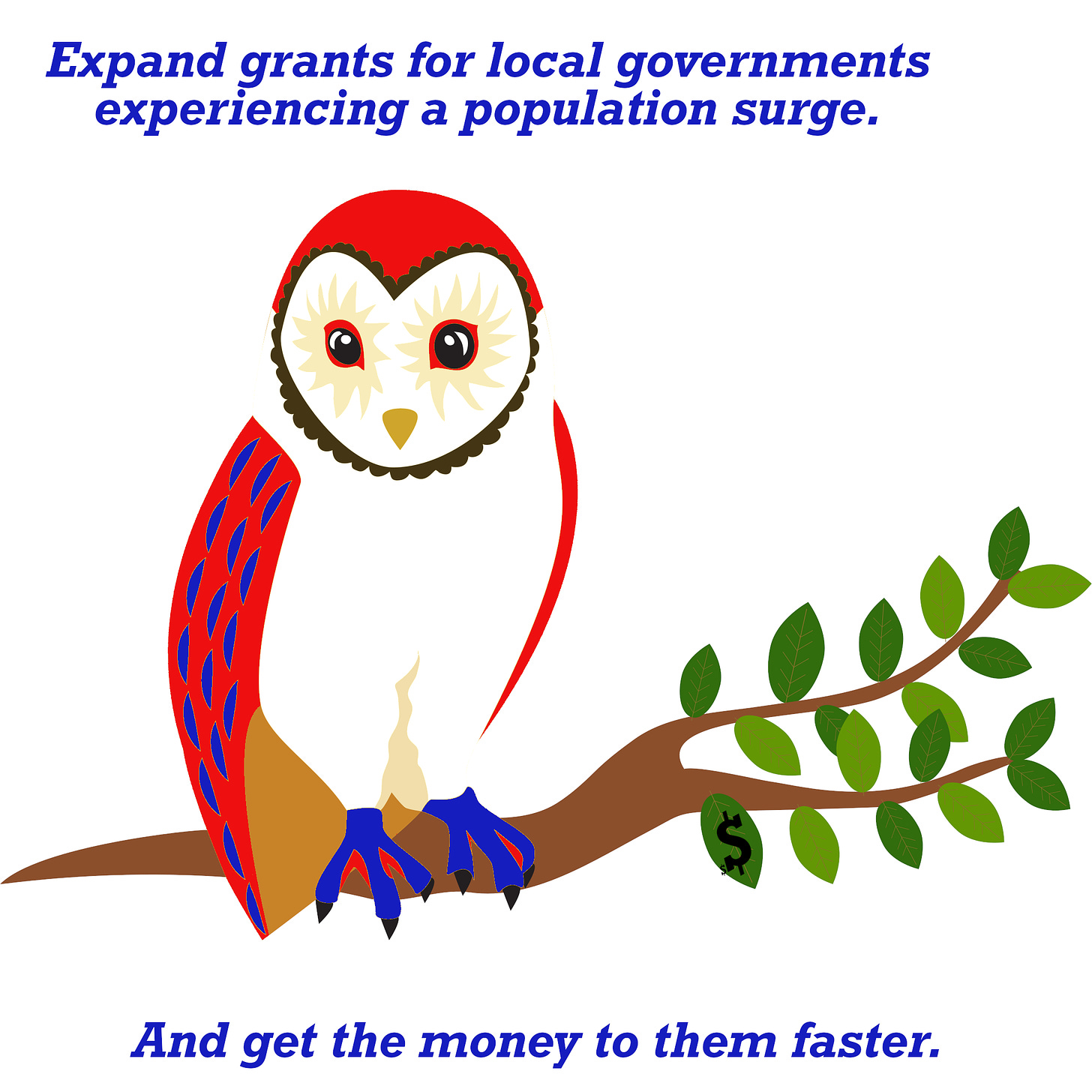1. Globalism
On September 1, 1983, Korean Air Lines Flight 007, which was meant to be flying from New York City to Seoul, accidentally flew into prohibited Soviet airspace. The Soviets, after trying briefly to communicate and firing warning shots, shot it down, killing everyone on board. The 269 casualties included a prominent U.S. congressman.
Many elements of the United States’s response were obvious and uncontroversial. They thoroughly thwarted the inevitable coverup attempt, and the government condemned the trigger-happy Soviets in media and in the United Nations. But those were just words. What was the best action to take in response? To do nothing would show unacceptable weakness.
Robert Byrd, the Democratic Senate Minority Leader, said we should cancel our recent grain export agreement. This seems to have been his go-to proposed sanction—when they’re being so aggressive, why should we be sending them our corn?
Jesse Helms, a prominent Republican Senator, called for the expulsion of almost all Soviet diplomats, which would put an end to ongoing nuclear disarmament talks. Why should we continue the charade of peaceful cooperation when they’re shooting our people out of the sky?
But neither of them were in charge. President Ronald Reagan was. His response was to accelerate the development of what we’d come to call GPS, the Global Positioning Service. A common good, created by the U.S. to be made available to everyone in the world for free. Flight 007 had been more than 300 miles off course without realizing it. That would never be possible again. Reagan saw no point in “retaliation for retaliation’s sake,” he said. The war to fight was the war for aviation safety.
On September 16th, 1983 (that same month!) GPS officially became available to civilians. That’s the day the U.S. won the space race. The Soviets had the first satellite, the first astronauts. But it was the United States that had the strength, vision, and will to use its space program for all mankind.1
2. The Sinews of Peace
In the 1946 speech that marked the beginning of the Cold War, Winston Churchill prophesied that it would last about half a century.
Churchill was, at the time, the Conservative Opposition Leader, not the Prime Minister. After the victory, Britain had swapped out its wartime leader for Labour’s Clement Atlee, whose skillset was better suited to the expansion of the welfare state. But Churchill wasn’t going anywhere. With that same ferocious optimism that had led his nation through the war, he delivered a magnificent speech he titled “The Sinews of Peace.” It’s best known for talking about an “iron curtain” and a “special relationship,” but here’s a less-quoted passage.
All this means that the people of any country have the right, and should have the power by constitutional action, by free unfettered elections, with secret ballot, to choose or change the character or form of government under which they dwell; that freedom of speech and thought should reign…Here are the title deeds of freedom which should lie in every cottage home. Here is the message of the British and American peoples to mankind. Let us preach what we practise – let us practise what we preach.
…I have not yet spoken of poverty and privation which are in many cases the prevailing anxiety. But if the dangers of war and tyranny are removed, there is no doubt that science and co-operation can bring in the next few years to the world… an expansion of material well-being beyond anything that has yet occurred in human experience. … [T]here is no reason except human folly or sub-human crime which should deny to all the nations the inauguration and enjoyment of an age of plenty. I have often used words which I learned fifty years ago from a great Irish-American orator, a friend of mine, Mr. Bourke Cockran. “There is enough for all. The earth is a generous mother; she will provide in plentiful abundance food for all her children if they will but cultivate her soil in justice and in peace.”
To Churchill, the 20th century was not defined by the struggle for freedom, not by war. In a 1949 speech at MIT, he said this:
The outstanding feature of the 20th century has been the enormous expansion in the numbers who are given the opportunity to share in the larger and more varied life, which in previous periods was reserved for the few and for the very few. This process must continue at an increasing rate. If we are bring the broad message of the people in every land to the table of abundance, it can only be by the tireless improvement of all our means of technical production and by the diffusion in every form of education of an improved quality to scores of millions of men and women.
To be clear, the difference between Churchill and his Nazi and Communist foes wasn’t Churchill’s technological optimism. The Communists were quite capable of glorious dreams of abundance. But the vibe was a bit different. Here’s First Secretary Nikita Khrushchev in a 1956 speech at a party meeting in Warsaw:
It should be understood that our forces will grow, not only as a result of the development of heavy industry and means of armament, but our forces will be strong given existing armament, the same volume of heavy industry production; if we increase the living standard of our peoples.
He goes on to condemn Stalin for investing too much in civilian infrastructure, which sure is a hot take, though not entirely without basis. His roads and canals were imprudent, Khrushchev says, because they give no significant strategic advantage. They’re often used by foreigners! And the university in Leningrad provides elevators, not just to its professors, but to its students, in an absurd waste of resources. “Why fly to the sky?” he asks. “What’s wrong with the ground?”
This leader of a vast empire, this would-be utopian visionary, who came to Warsaw to talk of peace and hope, can’t help but reveal a meanness of spirit. He’s mean in the modern sense—nasty, mocking, adversarial. But he’s mean, too, in the older sense that he thinks too much in terms of scarcity. Making sure the wrong people don’t get too much, too soon, is a priority for him at least on par with improving agricultural efficiency. And he’s just so petty. Half of what he says about agriculture is just rambling about how much corn Americans and Romanians eat, all of which is incomprehensible to me because I’m not part of whatever little culture war he was obsessed with.
No wonder we buried him.
3. “Can’t we all just get along?”
If you’ve got fifty minutes to spare, I recommend this simple and effective bit of citizen journalism:
It’s just a guy going to Springfield, Ohio, interviewing a bunch of people, and editing together the results, without comment. The one that’s stuck with me the most is a sad old man who clearly thinks his town is broken beyond repair, even if he can’t quite bring himself to say it. He likes his Haitian refugee neighbors as individuals. He talks about befriending and helping the ones who are literally next door. “Can’t we all just get along?” he says, laughing at how cliché he’s being. But the wave of immigration wasn’t handled correctly, he says, to the point where it was net-negative in impact. It was too much, too fast, with too little help. That man is going to vote for Donald Trump next week.
In fact, Donald Trump will probably win the election, and will certainly get about half of the vote. That’s a terrible indictment of the Democratic Party. Trump’s speeches, in content and form, sound nigh-identical to that awkwardly-translated and fragmentary Soviet speech. But clearly we don’t have a Churchill or a Reagan opposing him.
It’s not just a rhetorical problem. We don’t have a government that sees towns struggling with unexpected spikes in population and creates a system to help them. Not quickly, not credibly, not loudly. (There are some federal grants, but clearly at too small a scale, and it looks like they’re focused on people being released from detention.) That kind of system would be a heck of a lot easier to create than GPS, though. The simplest version I can think of is just this: whenever a town’s population spikes, send each of the existing taxpayers a federal check. We’d get our money back in increased federal taxes within three years (immigration! It’s like births, but cheaper and faster!). Maybe there’s some reason it needs to be slightly more complicated. But there’s no way it needs to be so complicated that the people in Springfield don’t even know that it’s happening.
4. David Brooks’s Whig Party
I’m the sort of person who makes columnist David Brooks want to vomit. I learned this from his recent essay in The Atlantic, “Confessions of a Republican Exile.” Brooks became a Republican under Reagan, and has culturally immigrated to the Red World, which means his current de facto Democrat-ness forces him to “suppress my gag reflex.”
The progressive aristocracy’s assumption that all sophisticated people think like them, its tendency to opine about the right without ever having seriously engaged with a single member of that group, the general attitude of moral and intellectual superiority—in my weaker moments, all of it makes me want to go home and watch a bunch of Ben Shapiro videos.
Okay, I’d like to think that I don’t 100% fall into those fallacies, but I definitely use the shibboleths that make me sound like I do. Brooks holds a “what would be considered progressive” position on trans issues, but hearing people use the word “cisgender” makes him want to hurl, and I use that word a lot. And, conversely, Brooks makes most of my family a little queasy, especially if they’re reading that op-ed on a moving train.
But if Brooks is willing to take some Dramamine®, I’d like to be a part of his party.
In his essay, and not for the first time, Brooks calls himself a Whig. “Whig” is an old term, originally a slur against Scottish people importing corn from England. It’s been the name of multiple political parties and has referred to many different ideologies and coalitions. The logo is usually an owl.
I think Brooks is seizing on “Whig” as essentially the only word for “person who wants to make everybody rich” that hasn’t come to be associated with the Democrats and/or the American Left. Here’s how Brooks defines it:
Whigs put social mobility at the center of our politics. If liberals prioritize equality and libertarians prioritize individual freedom, Whigs ask: Which party is doing the most to expand opportunity, to help young people rise and succeed in our society? Which party is doing the most to cultivate energy, ambition, creativity, and daring in the citizenry?
And, more succinctly:
I like being around people who know that it’s really hard to design policies that will help others but who have devoted their lives to doing it well.
Brooks argues that the Democrats are the closest we have to the Whig party today. He cites FDR’s New Deal, Obama’s response to the Great Recession, and the “pragmatic imagination” of the Biden administration. Listening to Democratic politicians talk to each other about helping people is like “listening to craftspeople talk about their trades.” (Also, the Democrats have become the more patriotic party, which helps ease his Blue World culture shock.)
The Brooks piece isn’t about a realignment—he’s just saying what he does and doesn’t like about each party, and what he thinks people should do to fix them. And to vote Democrat next week! Thanks for that!
As the parties stand today, I strongly agree that we should vote Democrat next week. But afterwards? In the Whig spirit, Brooks should be thinking bigger.
5. Our Whig Party
I’ve said recently that if all this ends at all well, it’s going to end with a party realignment. In that essay I talked about it in realpolitik terms, but here I want to talk about the realignment I’d actually like to see.2
First of all, we absolutely should just call our new party the Whigs. Nobody try to think of anything clever, or write “um actually, the historical Whigs weren’t like that,” or try to tar anybody by association with any of the million things “Whig” has meant. Political parties that endure have simple, uninspired names. Because what a political party is, first and foremost, is an agreement to coordinate with people whose beliefs and interests are slightly different, which necessarily means satisficing, not optimizing, on everything that isn’t a core value. Brooks picked “Whig,” I don’t mind it, let’s go with that.
The Whig Party should be the party of Reagan—not the version of Reagan who lives in my head, who failed catastrophically on AIDS and rising economic inequality, whose bad intelligence and pointless saber-rattling risked snatching an apocalyptic tie from the jaws of victory in the Cold War. No, we should be the party of the version of Reagan who lives in Brooks’s head—the one who told Democrats “no, we’re not going to stop exporting corn to the USSR, we’re going to give everyone in the world access to geolocation.” The one who had the “epistemic humility” to notice when government programs weren’t actually helping, and the pragmatism to triple the national debt to fund the ones that actually seemed worthwhile.3 (Any examples are going to be controversial. The Reagan deregulation programs I most approve of were amnesty for illegal immigrants and removal of price controls on utilities. But the point is to idealize, not to relitigate eighties policy debates.)
The Whig Party should be the party of Churchill—not the “um actually Churchill was a racist colonialist reactionary” version, but the Churchill of his speeches. The one who won parliament back for his party in the fifties with a promise to build 300,000 new houses every year, and kept that promise. The one who defied Nazism and Communism without condemning Germans or Russians. The one who gracefully conceded elections, but never conceded an inch to Hitler. The party of Churchill is the one that wants one billion Americans to counterbalance China.
The Whig Party (got that barf bag ready, David?) should be the party of AOC and the Green New Deal, the set of proposals for combating climate change that focuses on creating new industries and growing the economy. Not the version in conservatives’ heads, but the general approach of “oh, we’ve got a global coordination problem? How can we solve that by making people richer?” The party of promoting nuclear disarmament after the fall of the USSR by making sure the new governments had the resources to convert the payloads into fuel for their power plants. The party of Obama’s, Angela Merkel’s, and China’s fantastically successful plans to loan billions of dollars to every startup with the word “solar” in it, resulting in solar power becoming the cheapest and fasting-growing source of energy in the U.S. today.
Almost everyone interviewed in that Springfield documentary is of the Whig Party without knowing it. Some of them think they’re angry about something the government did, but the main thing the government did was nothing. It failed to act when it seemed so obvious that it should that the inaction looked like action. An earnest government official says that very misunderstanding is the problem, that it’s misinformation, that everyone just needs to realize that the government is just following standard procedures, and certain benefits happened to sunset at exactly the wrong moment. Both of these perspectives are grounded in a deep belief that the government should be working for better outcomes for more people.
There’s a moment Democrats have mocked a lot, where the actor Craig T. Nelson, appearing on Fox News, said, in one breath, “I’ve been on food stamps and welfare. Anybody help me out? No. No.” 4 But think about what that really means. At his low point, government assistance was so meager that it felt like he wasn’t being helped at all. As the world around us gets richer, we the people scale up our expectations of general welfare, as we should. Our nation had enough money to help Nelson much more than we did, and he intuitively understood that. The mistake of the Republicans is that they attribute the problem to stuff going to the wrong people. They assume that if they’re losing out, someone else, someone less deserving, must be winning. And the mistake of the Democrats is…sometimes also that, with their excessive focus on inequality and the 1%, but mostly it’s that they deny the problem exists at all.
That denial is why people can both live in Springfield and see Trump as the more hopeful prospect. They know, everybody in that video knows, that he’s lying and making things worse. But at least he acknowledges that they’re missing out on something.
The Whig Party should be the party that agrees. Everybody is missing out on nearly everything. Everyone should be richer, in that tautological sense that makes for a good political slogan. Along with the followup: “here’s what we’re thinking about trying, any thoughts?”
6. The Next Eight Years
As Brooks says, the Whigs today are something like 70% Democrats, 30% Republicans. That’s an awkward spot. Trying to form a national Whig party will predictably fail, because Democrats will correctly perceive that if it succeeded, they’d lose an election cycle to the Republicans. Never Trump Republicans are nauseated at the prospect of joining a deep blue party.
But trying to start a competitive national third party isn’t very Whiggish anyway. Too zero-sum. You know what it’s called when your political rivals co-opt and implement all of your best ideas? It’s called winning.
We don’t need Whig candidates, we need Whig proposals. When Flight 007 goes down, we need a community, an identity, behind the proposal to respond by creating GPS, while the Democrats call for economic sanctions and the Republicans for diplomatic ones. Debating tradeoffs is important work, but let’s leave it to other brands. When I call for higher taxes on billionaires, I’ll do so as a Democrat. When Megan McArdle calls for the striking Boeing workers to give up, she can do so as a Republican. But when we call for the expansion of the social safety net, we can both do so as Whigs. (And eventually maybe we end up with a synthesis using quadratically-funded public goods that meets the demands of both billionaires and unions.)

That, I hope, is the missing ingredient in our political discourse today. A way to say “this government program isn’t working, but it should” that doesn’t make you sound like a Republican, a Democrat, or a centrist. A label for ideas that aren’t versus anyone, that aren’t designed around certain people needing to lose.5 Alongside debates about whether Harris’s price controls or Trump’s tariffs will work to transfer wealth from corporations to people, we also need conversations about how to create wealth, without particularly worrying about where that wealth goes. When people in Blue World hear conversations like that, they assume it’s a pretext for the 1% to grab even more of the pie. In Red World, they assume it’s a foolish utopian fantasy that denies the hard reality of scarcity and tradeoffs. Maybe we can fix that with the word “Whig”? Or at least make a start.
If and when this “works”—if and when the word “Whig” becomes a thing, with a vibe you like and people around you who agree—then it’s time to start building the party proper. Recruit people to run for local office. Run in races where the incumbent is basically unopposed. Get it started in ways that won’t look like a defection to the opposing side. Don’t try to steal a party. Build a reputation, and earn one.
I’m sure the story is more complicated than this. I don’t care. I’m doing a politics.
Aside from the realignment where both parties agree with me on everything important but are fiercely divided on which side to cut your eggs on. If that’s an option, I’ll take that please.
Brooks traces Whiggism in American politics back to Alexander Hamilton, who invented the national debt. Hamilton wrote in his proposal that as long as we reliably paid, a national debt would be “a national blessing.” This is the sort of position that is both simply correct (if you’re a large institution and can borrow money at low interest rates, you should always be doing so and investing it) and that no major party politician ever takes, because nobody’s brand is “we figure out the best thing to do and then figure out how to make the vibes of it acceptable.” Not anymore.
The world is big and complex and therefore somebody almost always loses in any proposal, but that should never be the motivation or framing, lest it devolve into pure spite.















